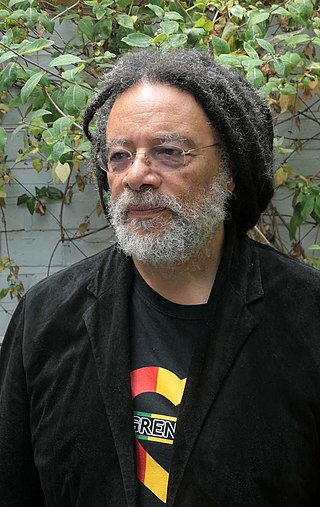Related Research Articles

A diaspora is a population that is scattered across regions which are separate from its geographic place of origin. Historically, the word was used first in reference to the dispersion of Greeks in the Hellenic world, and later Jews after the Babylonian exile. The word "diaspora" is used today in reference to people who identify with a specific geographic location, but currently reside elsewhere.

The term multiculturalism has a range of meanings within the contexts of sociology, political philosophy, and colloquial use. In sociology and in everyday usage, it is a synonym for "ethnic pluralism", with the two terms often used interchangeably, and for cultural pluralism in which various ethnic groups collaborate and enter into a dialogue with one another without having to sacrifice their particular identities. It can describe a mixed ethnic community area where multiple cultural traditions exist or a single country within which they do. Groups associated with an indigenous, aboriginal or autochthonous ethnic group and settler-descended ethnic groups are often the focus.

David Frawley is an American author, astrologer, teacher (acharya) and a proponent of Hindutva.

Paul Gilroy is an English sociologist and cultural studies scholar who is the founding Director of the Sarah Parker Remond Centre for the Study of Race and Racism at University College, London (UCL). Gilroy is the 2019 winner of the €660,000 Holberg Prize, for "his outstanding contributions to a number of academic fields, including cultural studies, critical race studies, sociology, history, anthropology and African-American studies".
Transnationalism is a research field and social phenomenon grown out of the heightened interconnectivity between people and the receding economic and social significance of boundaries among nation states.
Diaspora politics is the political behavior of transnational ethnic diasporas, their relationship with their ethnic homelands and their host states, and their prominent role in ethnic conflicts. The study of diaspora politics is part of the broader field of diaspora studies.

France Winddance Twine is a Black and Native American sociologist, ethnographer, visual artist, and documentary filmmaker. Twine's research has made significant contributions to interdisciplinary research in gender and sexuality studies, racism/anti-racism, feminist studies, science and technology studies, British cultural studies, and qualitative research methods. She has conducted field research in Brazil, the UK, and the United States on race, racism, and anti-racism and has published 11 books and more than 80 articles, review essays, and books on these topics. In 2020, she was awarded the Distinguished Career Award by the Race, Class, and Gender section of the American Sociological Association for her intellectual, innovative, and creative contributions to sociology. Twine is the first sociologist to publish an ethnography on everyday racism in rural Brazil after the end of military dictatorship during the "abertura".
Ghassan J. Hage is a Lebanese-Australian academic serving as Future Generation Professor of Anthropology at the University of Melbourne, Australia. He has held a number of visiting professorships including at the American University of Beirut, University of Nanterre – Paris X, the University of Copenhagen and Harvard. He is currently (2022-2023) a visiting professor at the Max Planck Institute of Social Anthropology in Halle (Germany).

The Macedonian diaspora consists of ethnic Macedonian emigrants and their descendants in countries such as Australia, Italy, the United Kingdom, Germany, New Zealand, Canada, the United States and others. A 1964 estimate put the number of Macedonian emigrants at over 580,000.
Postnationalism or non-nationalism is the process or trend by which nation states and national identities lose their importance relative to cross-nation and self-organized or supranational and global entities as well as local entities. Although postnationalism is not strictly considered the antonym of nationalism, the two terms and their associated assumptions are antithetic as postnationalism is an internationalistic process. There are several factors that contribute to aspects of postnationalism, including economic, political, and cultural elements. Increasing globalization of economic factors have shifted emphasis from national economies to global ones.
Among scholars of nationalism, a number of types of nationalism have been presented. Nationalism may manifest itself as part of official state ideology or as a popular non-state movement and may be expressed along civic, ethnic, cultural, language, religious or ideological lines. These self-definitions of the nation are used to classify types of nationalism. However, such categories are not mutually exclusive and many nationalist movements combine some or all of these elements to varying degrees. Nationalist movements can also be classified by other criteria, such as scale and location.

Polyethnicity, also known as pluri-ethnicity or multi-ethnicity, refers to specific cultural phenomena that are characterized by social proximity and mutual interaction of people from different ethnic backgrounds, within a country or other specific geographic region.
Robin Cohen is a social scientist working in the fields of globalisation, migration and diaspora studies. He is Emeritus Professor of Development Studies and former Director of the International Migration Institute, University of Oxford.
Migration studies is the academic study of human migration. Migration studies is an interdisciplinary field which draws on anthropology, prehistory, history, economics, law, sociology and postcolonial studies.
Ethnic nationalism, also known as ethnonationalism, is a form of nationalism wherein the nation and nationality are defined in terms of ethnicity, with emphasis on an ethnocentric approach to various political issues related to national affirmation of a particular ethnic group.

Razmik Panossian is a Canadian-Armenian historian and political scientist.

Evelyn Hu-DeHart is a Professor of History and a Professor of American Studies at Brown University.
Raymond Taras is a Canadian political scientist. His interests include issues of Central and Eastern Europe and Russia, multiculturalism, xenophobia, Islamophobia, ethnic conflicts, and response to refugee crisis and immigration in the receiving countries. During the 2014–15 academic year Ray Taras was a Leverhulme Visiting Professor at the Centre for Migration Research, University of Sussex. In 2018-19 he is Fulbright Distinguished Chair at the Australian National University in Canberra.

Steven Vertovec is an anthropologist and Director of the Max Planck Institute for the Study of Religious and Ethnic Diversity, based in Göttingen, Germany. He is also currently Honorary Joint Professor of Sociology and Ethnology at the Georg August University of Göttingen and Supernumerary Fellow at Linacre College, Oxford.
Jorge Duany is a theorist on Caribbean transnational migration and nationalism. Since 2012, he has been director of the Cuban Research Institute and Professor of Anthropology at Florida International University, and has held various teaching positions across the United States and Puerto Rico. His research focuses on concepts of nationalism, ethnicity, race, transnationalism, and migration within the Spanish Caribbean and between the Spanish Caribbean and the United States, particularly regarding Cuba and Puerto Rico.
References
- 1 2 3 4 5 Williams, Michelle Hale (2013). "Preface: multiculturalism and ethnic politics through the work of William Safran". In Williams, Michelle Hale (ed.). The Multicultural Dilemma: Migration, Ethnic Politics, and State Intermediation. Abingdon: Routledge. pp. XVII–XXIV. ISBN 978-0415631235.
- ↑ "Staff Changes". The American Political Science Review. 59 (3): 803–808. 1965. JSTOR 1953205.
- ↑ Safran, William (2003). "Recent French Conceptualizations of Diaspora". Diaspora: A Journal of Transnational Studies. 12 (2): 437–441. doi:10.1353/dsp.2011.0032.
- 1 2 "Curriculum vitae (abridged)". 15 January 2007. Retrieved 19 May 2015.
- ↑ Guelke, Adrian (2010). "Editorial". Nationalism and Ethnic Politics. 16 (3&4): 267–268. doi:10.1080/13537113.2010.526834.
- ↑ "Public Lecture: Prof William Safran, "Identity politics in France: the current debate and the place of diaspora"". International Migration Institute, University of Oxford. Retrieved 19 May 2015.
- 1 2 Williams, Michelle Hale, ed. (2013). "Appendix: select works of William Safran". The Multicultural Dilemma: Migration, Ethnic Politics, and State Intermediation. Abingdon: Routledge. pp. 240–246. ISBN 978-0415631235.